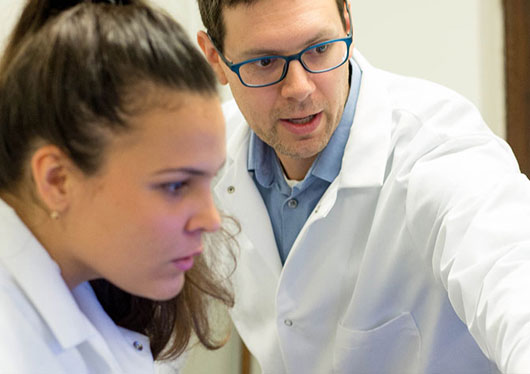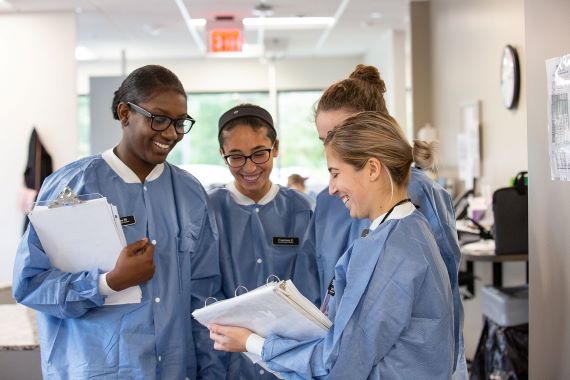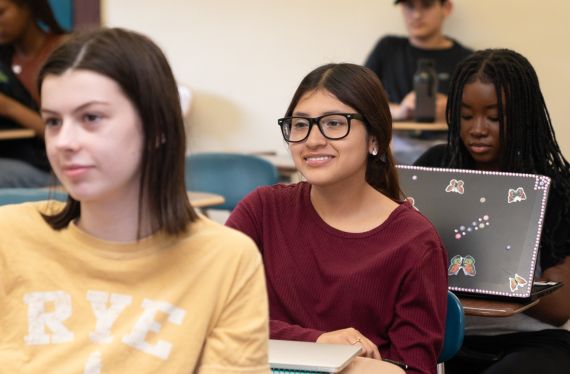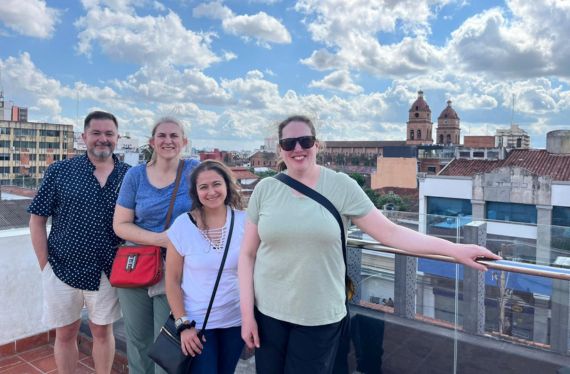Funding to Study Interventions for Neonatal Brain Injury
Regis College announced today that it received $275,000 from the National Institutes of Health, the largest award given to the university from the organization, to fund neonatal brain research in its Neuroscience program in the School of Health Sciences.
The grant project, “Neonatal Brain Injury: Mediating Factors for Improved Neurobehavioral Outcome,” was one of 20 out of 140 applications that received funding.
“I am very grateful to the NIH for providing the means to enhance the university’s academic research and applied learning opportunities for students in the field of neuroscience,” said Regis President Antoinette M. Hays, PhD, RN. “This critical research will provide significant contributions to advancing neonatal health and the growing field of neuroscience.”
Steven Threlkeld, PhD, associate professor and director of the university’s neuroscience program, will lead the research project to identify the age at which the combined impact of early life behavioral training and anti-inflammatory drug therapy can produce the greatest improvements in brain structure and learning after neonatal brain injury. The project is in collaboration with Women and Infants Hospital and ProThera Biologics in Providence, RI.
Brain injury caused by a lack of oxygen and blood flow is one of the most pressing challenges leading to mortality and brain damage in term and preterm infants. Between two and nine of every 1,000 live births result in brain injury and 50 to 80 percent of these infants experience neurological problems that persist across the lifespan, according to two studies as referenced by Threlkeld and colleagues in their own research.
“The next phase of this work will help inform new approaches to improving long-term outcomes by identifying critical windows for intervention in this serious condition,” said Threlkeld.
The grant provides funds for undergraduate neuroscience majors to participate in the research through July 2021. Prospective neuroscience majors are encouraged to attend open houses on October 20 or November 10. For more information, please click here.
This project is supported by the Eunice Kennedy Shriver National Institute of Child Health and Human Development of the National Institutes of Health under Award Number 2R15HD077544. The content is solely the responsibility of the authors and does not necessarily represent the official views of the National Institutes of Health.
Contact: Christopher Loh, Director of Communications, 781.768.7610



